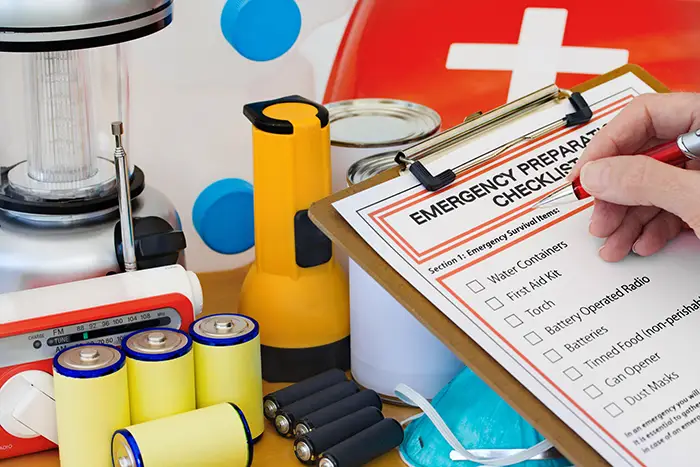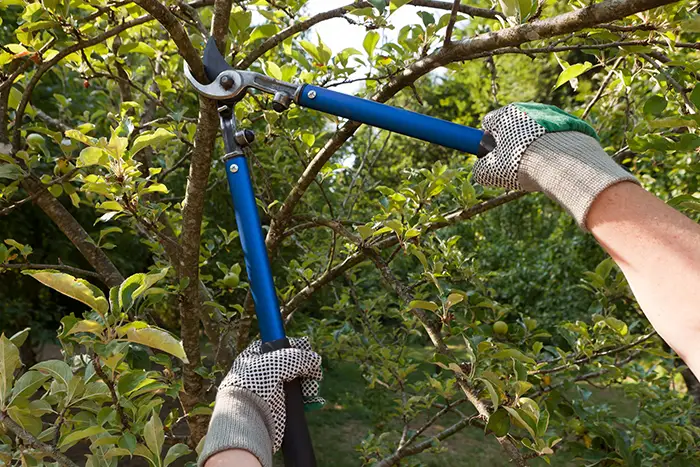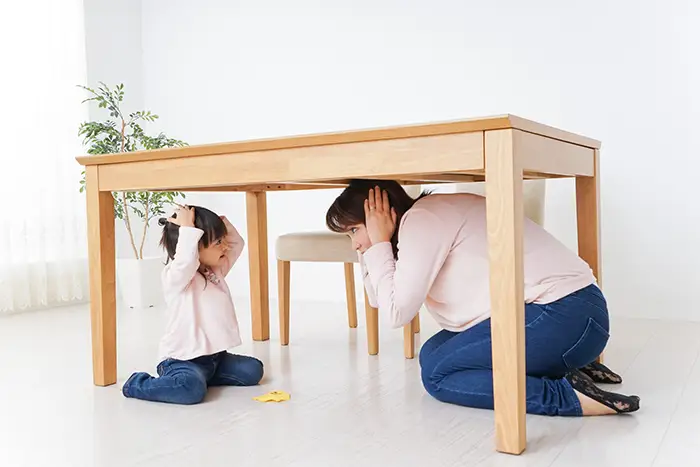Is Your Home Ready for a Natural Disaster?
Published on November 1, 2023 | 6 Minute read

Melanie
Ortiz Reyes
Content Specialist
Your home is more than just a structure; it's the sanctuary where your most cherished memories are made and where your loved ones find comfort and security. Yet, in a world where natural disasters can strike unexpectedly, safeguarding your home becomes an essential responsibility. Whether you reside in an area susceptible to hurricanes, earthquakes, wildfires, or floods, disaster preparedness is not a matter of choice – it's a commitment to ensuring the safety of your family and the protection of your most significant investment. Natural disasters do not discriminate; they have the potential to impact anyone, regardless of location.
Understanding Your Local Risks
Before you can truly prepare your home for a natural disaster, it's imperative to have a clear understanding of the specific risks associated with your region. Every area faces its own unique set of potential disasters, and knowing what you might encounter is the first step in readiness. By becoming aware of the threats that could affect your home, you'll be better equipped to take proactive measures for disaster preparedness. Here are some key risks to consider:
- Tropical Storms and Hurricanes - Coastal areas are at risk for hurricanes and tropical storms. Understanding hurricane categories and evacuation routes is vital.
- Earthquakes - Earthquake-prone regions need to secure heavy objects, reinforce foundations, and have emergency supplies readily available.
- Wildfires - In areas susceptible to wildfires, creating defensible space and having an evacuation plan is vital.
- Floods - Flooding can happen anywhere, so it's crucial to know your flood risk and have a plan for protecting your home.

Create an Emergency Plan
When a natural disaster strikes, having a well-thought-out emergency plan in place can make all the difference in ensuring the safety of your family and the protection of your home. By proactively planning for potential disasters, you'll be better prepared to navigate challenging situations and keep your loved ones safe.
- Evacuation Plan - Design a clear evacuation plan, including meeting points and routes. Ensure every family member understands the plan.
- Emergency Contacts - Have a list of emergency contacts, including local authorities and family members, readily available.
- Emergency Kit - Assemble a comprehensive emergency kit with essentials like water, non-perishable food, first aid supplies, flashlights, and batteries.
Protect Your Home
Your home is one of your most significant investments, and safeguarding it against natural disasters is paramount. In this section, we'll explore measures you can take to protect your home, regardless of the type of disaster you may face. By fortifying your home, you can minimize the potential risks and damages associated with natural disasters.
- Home Insurance - Review your home insurance policy to ensure it covers potential natural disasters in your area. Make any necessary updates.
- Roof and Windows - Secure your roof and windows to withstand strong winds and flying debris, common in hurricanes and tornadoes.
- Foundation - Reinforce your home's foundation, especially in earthquake-prone areas, to reduce the risk of structural damage.
- Fire-Resistant Landscaping - In wildfire-prone regions, create a defensible space around your home by using fire-resistant plants and materials.

Regular Maintenance
Consistent home maintenance is an integral part of disaster preparedness. By proactively identifying and addressing structural issues and potential hazards, you can significantly reduce the vulnerability of your home to natural disasters. Taking maintenance measures can go a long way in enhancing the resilience of your home, ensuring it stands strong in the face of adversity.
- Inspect Your Home - Regularly check for structural issues, such as foundation cracks, roof damage, and faulty electrical systems.
- Trim Trees and Shrubs - Regular tree and shrub trimming prevents overhanging branches that can cause damage during storms.
- Secure Heavy Objects - Bolt down heavy furniture and appliances to prevent them from toppling during an earthquake.
Stay Informed
Staying informed is a critical aspect of disaster preparedness. Knowledge is power, and having access to timely and accurate information can mean the difference between safety and vulnerability during a natural disaster. By staying informed and knowing where to turn for information and assistance, you'll be better equipped to make informed decisions and take appropriate actions in times of crisis.
- Emergency Alerts - Sign up for local emergency alerts and notifications to stay informed about potential threats.
- Weather Apps - Download weather apps that provide real-time information on storms, wildfires, and other natural disasters.
- Community Resources - Be aware of community resources, such as local shelters and emergency services, in case you need assistance during a disaster.

Practice Emergency Drills
Preparedness is not just about having a plan; it's about putting that plan into action. Whether it's a fire drill, an earthquake drill, or an evacuation drill, these practices help ensure that every family member knows how to respond swiftly and safely in the event of a natural disaster. By rehearsing these scenarios regularly, you can boost your family's readiness and confidence in handling emergencies.
- Fire Drills - Teach your family how to escape safely in case of a fire.
- Earthquake Drills - Practice "Drop, Cover, and Hold On" to protect yourself during an earthquake.
- Evacuation Drills - Conduct evacuation drills to familiarize everyone with evacuation routes and meeting points.
Your Path to Disaster Preparedness
Disaster preparedness is not a choice; it's a responsibility we owe to ourselves and our loved ones. Being prepared can make all the difference in the world when disaster strikes. It's not a matter of if but when, and your preparedness could mean the safety and security of your family and your home. Disasters may be indiscriminate in their approach, but the power to protect your home and loved ones lies firmly in your hands. Remember, disaster preparedness is not just about facing the worst-case scenario; it's about embracing the peace of mind that comes with readiness.
In the end, being prepared for a natural disaster is more than just a checklist of tasks; it's an affirmation of your commitment to the safety and well-being of your family and the sanctity of your home. Embrace the journey of readiness and let it empower you to answer confidently, "Yes, my home is ready for a natural disaster."